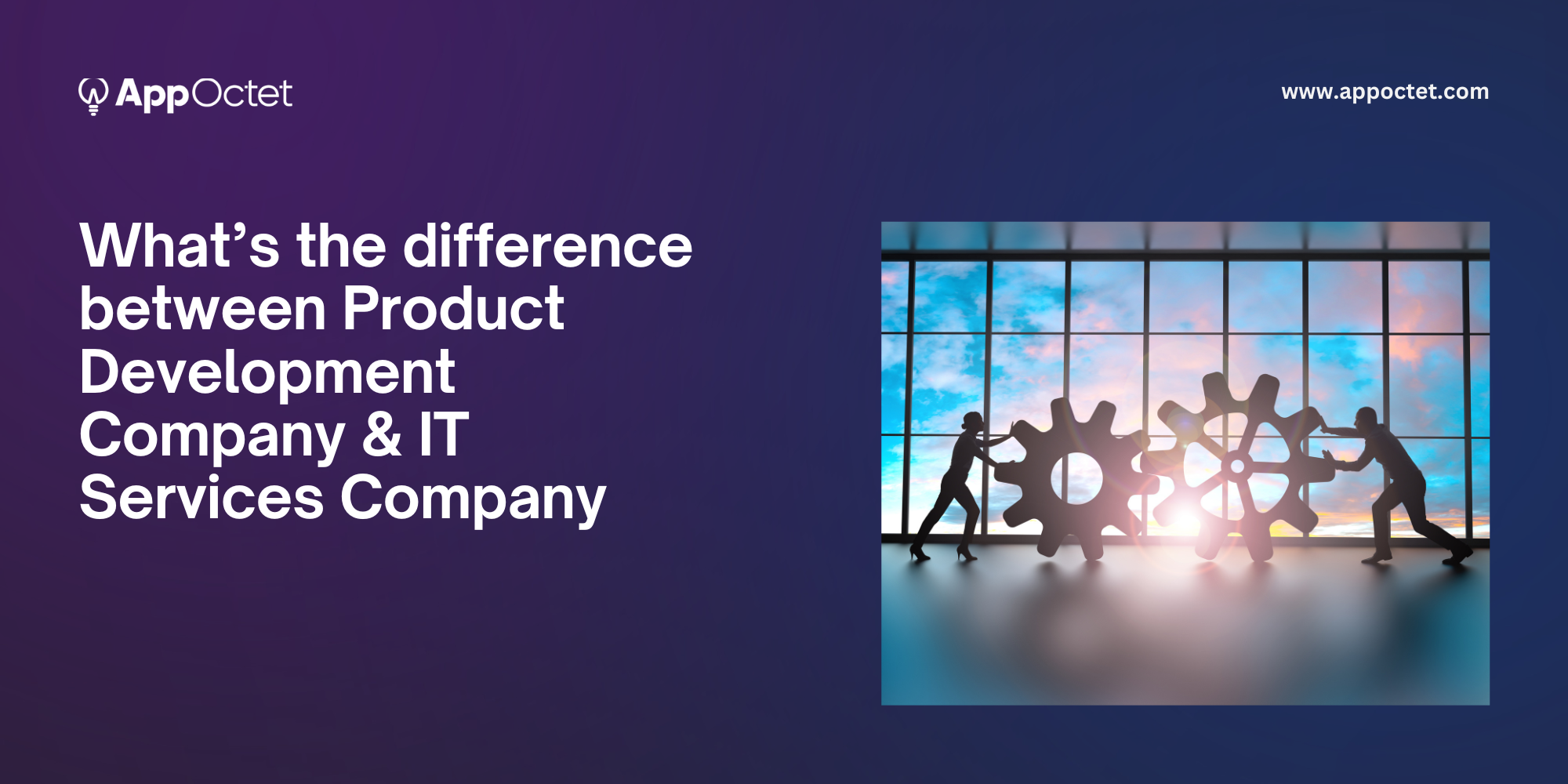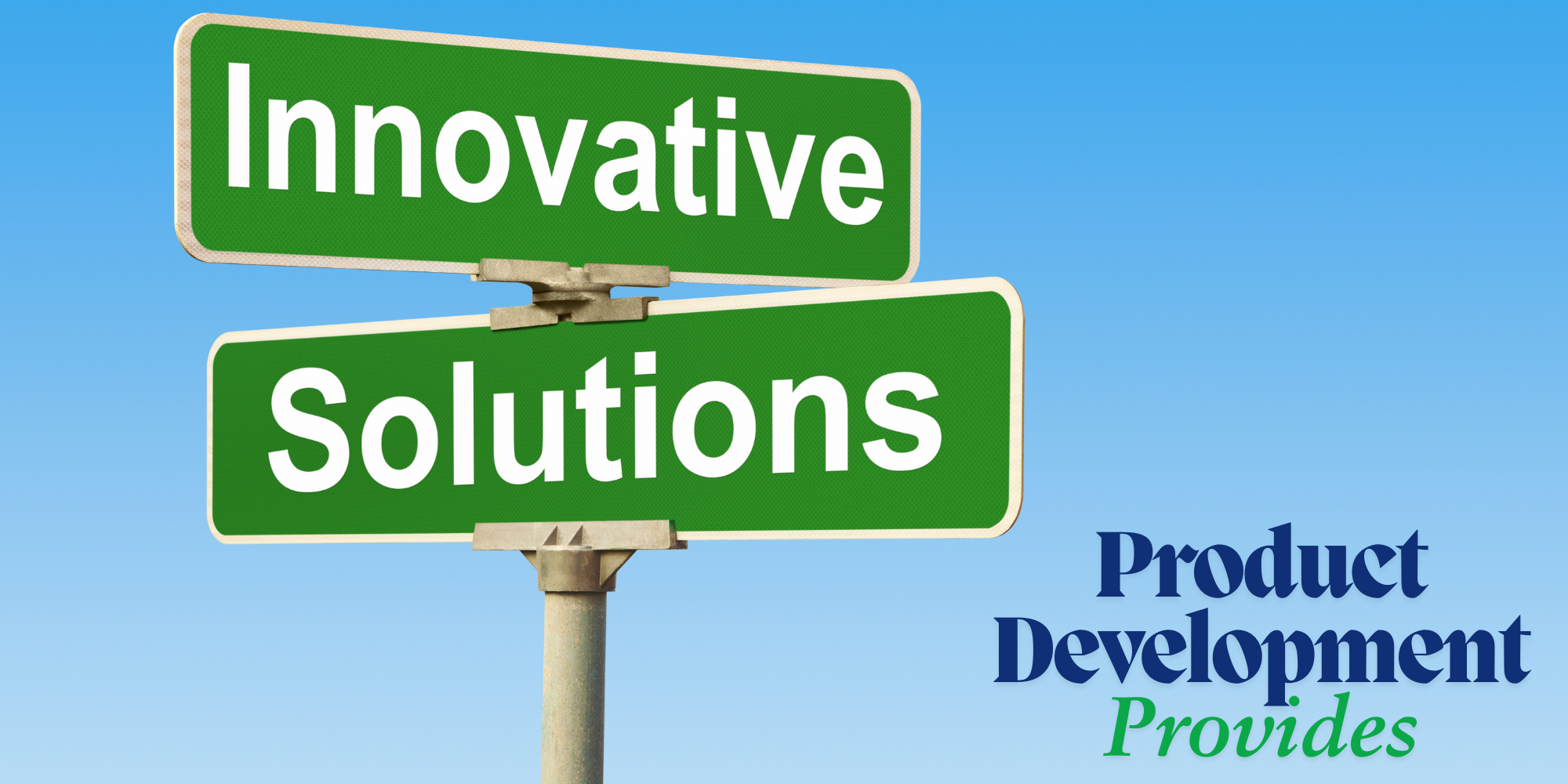
Introduction
In this blog, we’ll break down the “Product Development vs. IT Services: Key Differences” helping you understand their roles, business models, and value propositions.
In today’s tech-driven world, businesses often find themselves interacting with both IT services companies and product development companies. While these two types of companies operate within the tech ecosystem, they serve different purposes and function in unique ways. Understanding the distinction between the two is essential, especially for businesses seeking to collaborate, invest, or work within the tech industry.

Why Product Development companies are taking the lead.
- Here you can see how a product development company is way more effective than an IT services company: –
Our client Playace has been struggling for 7 years and looking for a tech company that can solve their problem from ground level. They collaborated with many IT companies, but they were not getting the desired results. When they got to know about AppOctet, our team & CTO understood their problem in detail & analyzed it & solved their problem within 2 months.
Want to solve your problem in minimum time? Begin your 30-day FREE trial now and see the difference your business can make with our complete solution.
Enterprise leaders see IT teams as less capable of delivering basic functions than they did a decade ago. A business-centric approach is getting to see more towards a Product Development company. Less than half of C-level executives believe their IT organizations are effectively delivering basic services, compared to about two-thirds with confidence in 2013, according to a survey recently released by the IBM Institute for Business Value. The drop was the largest among the CEOs surveyed. This is one of the key distinct of Product Development vs. IT Services
64% had confidence in their organizations’ IT departments to deliver basic services, but the percentage fell to 36% this year.
69% had confidence in their departments a decade ago; now just 47% do.
Confidence also fell among CFOs.
- Product Development companies have a balance of strategic innovation & running the systems whereas IT companies are facing a challenge to balance both.
Core Focus: Product Development vs. IT Services: Their Key Distinct
The most significant difference between IT services companies and product development companies lies in their core business offerings.
- IT services companies provide a range of technology services to businesses, often focused on meeting specific client needs. These services can include consulting, custom software development, cloud services, cybersecurity, infrastructure management, and more.
- Their primary goal is to solve client-specific problems. The solution is typically unique for each client and tailored to their requirements.
- A product development company, on the other hand, focuses on creating a specific product or suite of products, often aimed at a larger market or user base. The company owns, maintains, and iterates on the product over time.
- The product is designed for scalability, meaning it can be used by many customers without requiring significant customization for each one.
What does an IT company do? It’s key distinct: Product Development vs. IT Services
IT companies fail to truly address the root of their clients’ problems, opting instead for quick fixes that serve short-term goals. Their focus is often on securing short-term projects and maximizing revenue, rather than taking the time to deeply understand the client’s challenges at the ground level. As a result, they propose superficial solutions that might temporarily patch up issues but fail to provide lasting value or address underlying problems. This approach leaves clients with unresolved challenges, forcing them to revisit the same issues repeatedly, ultimately costing more in the long run. Instead of prioritizing long-term partnerships and meaningful problem-solving, these companies prioritize immediate profits, leading to dissatisfaction and a lack of trust from their clients.
What does a product development company do?
A product development company focuses on the design, creation, and continuous improvement of products. These companies typically develop their own proprietary products aimed at solving market needs, which can range from software and hardware to physical goods or even services. The goal of a product development company is to bring new, innovative products to market that can be sold to a wide range of customers, rather than creating one-off, client-specific solutions. They do this by focusing on a few key areas:
- Development
- Design
- Programming
1)Development
Development is at the core of what software companies do. It’s the first step in creating the products that are useful for consumers and organizations. One of the most popular development models in modern software stems from agile methodology. This encourages teams to focus on continuous integration, collaboration and testing to create the best possible products.
2)Design
The design element is key to ensuring that the software is functional for users. Software companies take the project requirements into consideration and turn that into a product that the end-user can navigate. This often requires a deep understanding of who will be using the software, and rounds of testing to get it right.
3)Programming
Design and programming work together. However, programming is the actual nuts and bolts of the software itself. Programmers work to code software and ensure that software products serve their intended purpose. Software companies, and specifically their programmers are also involved with maintaining or making changes to existing software.
To read our blog on How to Stay One Step Ahead of Competitors with Market Research and Insights using ChatGPT: The Power Of ChatGPT- Stay Ahead of Competitors with ChatGPT (appoctet.com)
Conclusion
Product development companies surpass IT services companies in several key areas, making them a more attractive choice for businesses. Their focus on innovation, ownership of intellectual property (IP), and long-term strategic vision sets them apart. By building unique products, Product Development companies can create significant market value, scale more efficiently, and drive technological advancements.
Choosing a product development company offers the opportunity to work on cutting-edge solutions, be part of transformative projects, and contribute directly to the creation of something impactful.
While both IT services and product development companies have their place, product development firms are often a better choice for companies looking for innovation. By focusing on new products and long-term solutions, these firms help businesses stay ahead of the competition.